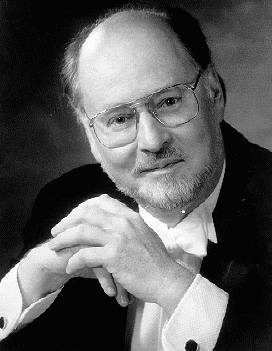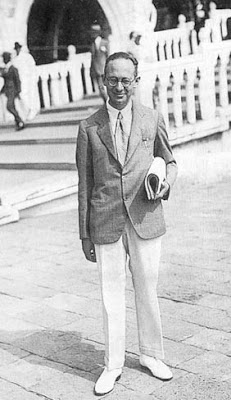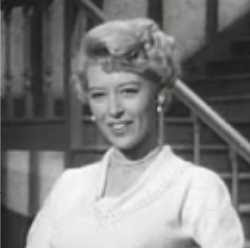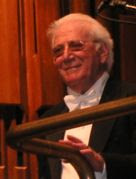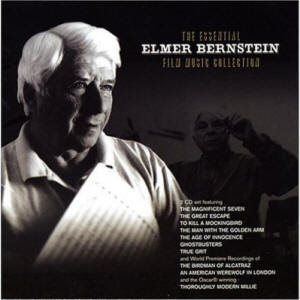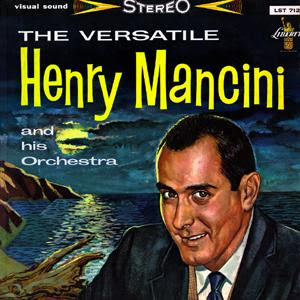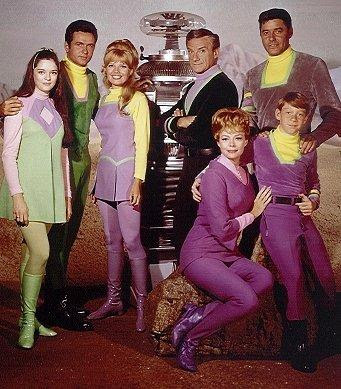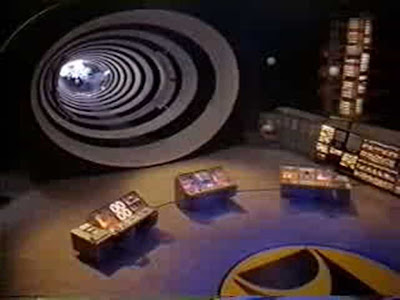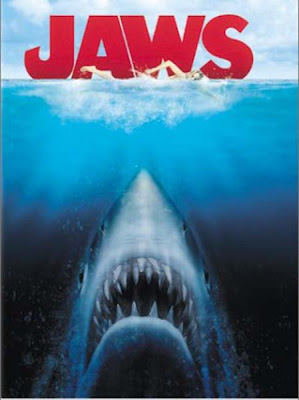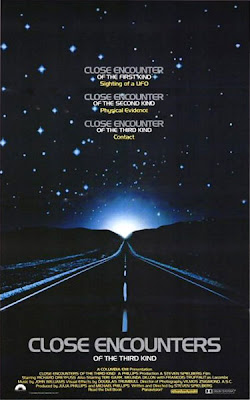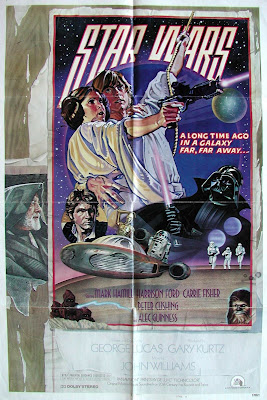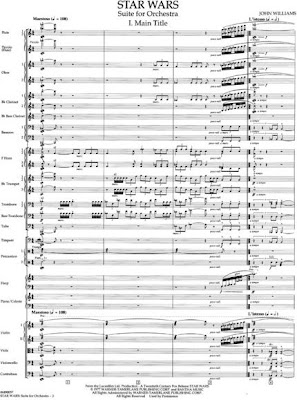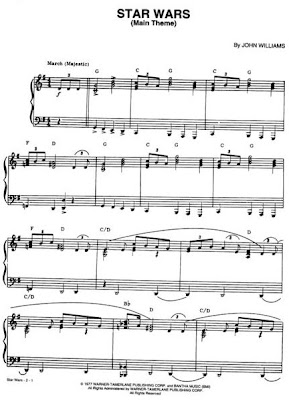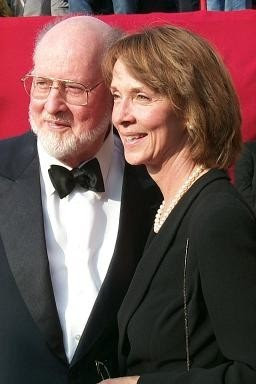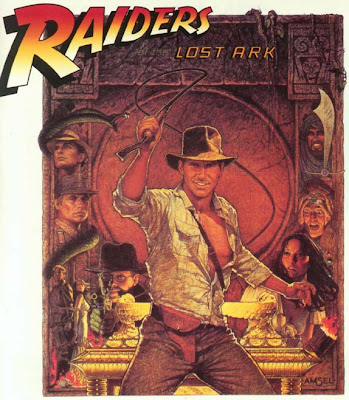
Little Richard [Wayne Penniman] (b. 1932)
Every Hour (1951)
Rev. Richard Wayne Penniman (b. December 5, 1932, Macon, GA), better known by the stage name Little Richard, is an American singer, songwriter and pianist, who began songwriting and performing publically (outside of the church) in 1945 and was a key figure in the transition from rhythm & blues to rock and roll in the 1950's.
Penniman's reputation rests on a string of hit singles from 1955 through 1957, such as Tutti Frutti (1955), Lucille, and Long Tall Sally, which influenced generations of rhythm and blues, rock, and soul music artists.
Little Richard's early work was a mix of boogie-woogie, rhythm and blues, and gospel music, but with a heavily accentuated back-beat, saxophone riffs, and raspy shouted vocals, moans, screams, and other emotive inflections.
In 1957, while at the height of stardom, he became a born-again Christian, enrolled in and attended Bible college, and withdrew from recording and performing secular music.
Claiming he was called to be an evangelist, he has since devoted large segments of his life to this calling.
***
Good Golly Miss Molly is a hit rock 'n' roll song first recorded in 1958 by Little Richard. The song, a 12-bar blues, was written by John Marascalco and producer Robert "Bumps" Blackwell. Although it was first recorded by Little Richard, Blackwell produced another version by The Valiants, who imitated Little Richard, but sang the song even faster. Although the Valiants' version was released first, Little Richard had the hit. Like all his early hits, it quickly became a rock 'n' roll standard and has subsequently been covered by hundreds of artists.
***
Richard Wayne Penniman was the third of 12 children of Charles "Bud" Penniman, Sr., a bootlegger, and his wife Leva Mae (née Stewart). He grew up in a religious family in which singing was an integral part of their lives; they performed in local churches as The Penniman Singers, and entered contests with other singing families. His family called him "War Hawk" because of his loud, screaming singing voice. His grandfather, Walter Penniman, was a preacher, and his father's family were members of the Foundation Templar African Methodist Episcopal (AME) Church in Macon. His maternal grandmother was a member of Macon's Holiness Temple Baptist Church. Penniman attended the New Hope Baptist Church in Macon, where his mother was a member. Penniman's favorites were the Pentecostal churches because of the music and the fun he would have doing the holy dance and speaking in tongues with members of the congregation. When he was 10, he became a faith healer, singing gospel songs and touching people, who would testify that they felt better afterwards. Inspired by Brother Joe May, a singing evangelist known as "The Thunderbolt of the West," Penniman wanted to become a preacher.
Nearly all of Penniman's dramatic phrasing and swift vocal turns are derived from black Gospel artists of the 1930s and '40s. He said Sister Rosetta Tharpe was his favorite singer when he was a child. She had invited him to sing a song with her onstage at the Macon City Auditorium in 1945, after hearing him sing before the concert. The crowd cheered, and she paid him more money than he had ever seen after the show.
He was also influenced by Marion Williams, from whom he got the trademark "whoooo" in his vocal, Mahalia Jackson and Brother Joe May.
He was influenced in appearance (hair, clothing, shoes, makeup, etc.) and sound by late 1940s gospel-style, jump blues shouter Billy Wright, a friend of his who was known as the "Prince of the Blues."
Wright set Penniman up with DJ Zenas Sears, who scored the newcomer his first recording contract in 1951.
One of Penniman's main influences in piano-playing was Esquerita (Eskew Reeder, Jr.), who showed him how to play high notes without compromising bass. Penniman met Esquerita when he traveled through Macon with a preacher named Sister Rosa. Another influence was Brother Joe May. Penniman explained, "I used to get in a room and try to make my piano sound just like him. He had so much energy."
May generated energy by moving from a subtle whisper to a thunderous tenor and back in a four-bar phrase.
Penniman lived in a black neighborhood; he had some contact with whites but, due to racial segregation, he could not cross the line where the whites lived.
While in high school, Penniman played alto saxophone in the marching band. He began losing interest in school and began performing in a variety of travelling shows in his mid-teens.
In October 1951, Penniman began recording jump blues records for RCA Camden. His father was shot to death while he was performing at a club on January 12, 1952.
In October 1953, he began recording with Peacock Records.
Records were released each year from 1951–54, but none were significant hits.
Following two recording sessions with Peacock in 1953, Penniman, dissatisfied with his solo career, began to form a new R&B road band that he called "The Upsetters." The band began with New Orleans drummer Charles "Chuck" Connors and two saxophonists, including Wilbert "Lee Diamond" Smith.
By 1955, the band was joined by saxophonists Clifford "Gene" Burks and Grady Gaines, who became its leader, along with Olsie "Baysee" Robinson on bass, and Nathaniel "Buster" Douglas on guitar.
At Lloyd Price's suggestion, Penniman recorded a demo for gospel/R&B label Specialty Records on February 9, 1955.
Specialty's owner, Art Rupe, loaned him money to buy out his contract from Peacock Records and placed his career in the hands of Specialty's A&R man Robert "Bumps" Blackwell.
Rupe and Blackwell originally pictured Penniman as a commercial rival to Ray Charles, who was experiencing success with Atlantic Records by taking gospel songs and developing them in a bluesy setting with a beat.
Penniman told Rupe he liked Fats Domino's sound, so Rupe and Blackwell booked Cosimo Matassa's J & M Recording Studio in New Orleans, and hired studio musicians who had worked with Domino (including Earl Palmer on drums and Lee Allen on sax) rather than members of Penniman's road band on many of the mid-1950s Specialty tracks.
Following some recording that did not satisfy Blackwell, they took a break. Penniman began pounding out a boogie woogie rhythm on piano and hollering out impromptu recital of Tutti Frutti, a song he had been performing on stage for years. While Penniman is credited with co-writing the song, it bears resemblance to a song titled Tutti Booty recorded by Slim and Slam in 1938. Blackwell was so impressed with the sound that he had Penniman record the song.
However, in order to make it commercially acceptable, Penniman's lyrics were rewritten. Blackwell recognized that the lyrics, with their “minstrel modes and homosexuality humor” needed to be cleaned up.
For example “Tutti Frutti, good booty / If it don’t fit, don’t force it / You can grease it, make it easy", were replaced with “Tutti Frutti, all rooty! Tutti Frutti, aw-rooty.” The song featured the a cappella intro "A-wop-bop-a-loo-lop-a-lop-bam-boom!" that had also been altered slightly to make it commercially acceptable.
The recording was released on Specialty in October 1955.
Tutti Frutti climbed to the top of Billboard's R&B chart. Sixteen more hit singles followed in less than three years, seven of which reached number 1.
While most of these hits were characterized by a driving piano, boogie-woogie bass line, a variety of rhythmic drumbeats, and wild screams before Lee Allen's sax solos, such as Rip It Up; Lucille; Jenny, Jenny; Good Golly, Miss Molly; and Keep A-Knockin' a few of them were slower in tempo and more soulful, such as Slippin' and Slidin'; Send Me Some Lovin'; and True Fine Mama.
During this period, he also appeared performing his hit songs in three films, including The Girl Can't Help It (1956), in which he sang the hit title track, Don't Knock the Rock (1956), and Mister Rock and Roll (1957).
Tutti Frutti was quickly covered by both Elvis Presley and Pat Boone.
While Presley's versions only appeared as album tracks, Boone's covers were released as singles and his Tutti Frutti single outsold the source record and "outdid Richard's on the hit parade."
Boone also released a version of Long Tall Sally with slightly bowdlerized lyrics, but this time, the original version outperformed the cover on the Billboard pop chart.
Presley and Bill Haley tackled Penniman's fourth R&B chart topper, Rip It Up, but his single was the hit.
Penniman, along with his road band, performed his hits in sports stadiums and concert venues across the United States through 1956 and 1957.
He brought the races together at his concerts, at a time in the United States when laws still dictated that public facilities (including concert venues) be divided into separate "white" and "colored" domains. His audiences would start out segregated in the building, usually with one race on the floor and the other on the balcony, but most of the time, by the end of the night they were mixed together.
Racists in the south, such as The North Alabama White Citizens Council, responded by putting out statements on television, warning the public that "Rock n Roll is part of a test to undermine the morals of the youth of our nation. It is sexualistic, unmoralistic and ... brings people of both races together."
The demand for him was so great, however, that even in the south where segregation was most rampant, the taboos against black artists appearing in white venues were being shattered.
Penniman was an innovative and charismatic performer, appearing in sequined capes under flicker lights that he brought from show business into the music world. He would run off and on the stage, jumping, yelling, and whipping the audience into a frenzy.
At a concert in Baltimore, Maryland, US concert history was made when excited people had to be restrained from jumping off the balconies, and the police had to stop the show twice to remove dozens of girls that had climbed onstage to try to rip souvenirs from Penniman. Later in the show, girls began to throw their undergarments onto the stage.
While on the road in the mid-50s, Penniman would have notorious parties, replete with orgies, in hotel rooms wherever they appeared. In late 1956, he met a voluptuous high school graduate in Savannah, Georgia by the name of Angel Lee. She became his girlfriend and started travelling on the road with him. Penniman would invite attractive men to his parties and would enjoy watching them having sex with his girlfriend.
In early October 1957, on the fifth date of a two week tour of Australia, Penniman was flying from Melbourne to appear in front of 40,000 fans in concert in Sydney. Shocked by the red hot appearance of the engines against the night sky, he envisioned angels holding up the plane. Then, while he performed at the stadium, he was shaken by the sight of a ball of fire that he watched streak across the sky overhead. He took what was actually the Russian satellite Sputnik as another sign to quit show business and follow God. The following day he departed Sydney on a ferry and threw his $8,000 ring in the water to show his band members that he was serious about quitting. The plane that he was originally scheduled to fly back home on ended up crashing in the Pacific Ocean, which he took as confirmation that he was doing what God wanted him to do.
The news of him quitting at the height of his career had broken all over the world by the time he returned to the United States.
He attended one more recording session for Specialty on October 18, 1957, and, at the request of DJ Alan Freed, performed a farewell concert at the Apollo Theatre in New York. He then had his roadies drive his Cadillacs across the United States to a property he bought for his mother in California and gave her the keys.
He formed the Little Richard Evangelistic Team, travelling across the country preaching, and helped people locally through a ministry on skid row in Los Angeles.
From October 1957 to 1962, Penniman recorded gospel music for Goldner, Little Star, Mercury, and Atlantic Records.
He also enrolled in the Seventh-day Adventist Oakwood College (now Oakwood University), in Hunstville, Alabama, where he planned to take a three year course which was to culminate in ordination.
In November 1957, he met Ernestine Campbell at an evangelistic meeting in Washington, D.C.
They were married on July 11, 1959.
Following release of his gospel album for Mercury Records, Little Richard met Mahalia Jackson, one of his childhood heroes. She was appearing in Los Angeles and he stopped her on the street to invite her to hear him sing at the Mount Maria Baptist Church. She attended and indicated that she was delighted with his singing, stating that "he was singing gospel songs the way they should be sung" and "he had that primitive beat and sound that came so naturally."
Two of his gospel songs during this period hit the charts - "He's Not Just a Soldier" (1961) for Mercury, and "Crying In The Chapel" (1962) for Atlantic Records.
He continued in the ministry but was experiencing marital problems and some difficulty living his ideal of a disciplined Christian life.
Although rock and roll sales were in a slump in America in 1962, Penniman's records were still selling well in England. British promoter Don Arden booked him for an October tour of the country, with The Beatles as an opening act.
Penniman thought he was going to perform gospel music, but Arden had promoted the concert as a rock and roll show. On the first night of the tour he began performing gospel music, but gave in to the pressure and began performing his secular hits. He walked off to a standing ovation. The frenzied crowd reaction was to be repeated wherever he appeared.
Penniman returned to Specialty Records in April 1963, recording one secular track. In mid-summer, around the time of Penniman's divorce, Don Arden began negotiating a second tour of England. Penniman did not disclose this to the church community because he wasn't convinced that rock and roll was evil and still wanted to keep his options open in the ministry.
He toured England and Wales in October and November 1963, with Bo Diddley, The Everly Brothers and the then little-known Rolling Stones.
Mick Jagger would later state, "I heard so much about the audience reaction, I thought there must be some exaggeration. But it was all true. He drove the whole house into a complete frenzy... I couldn't believe the power of Little Richard onstage. He was amazing."
Near the end of the tour, he recorded a television show, The Little Richard Spectacular, with Sounds Incorporated as the backing band and The Shirelles performing backing vocals, for Britain's largest independent television company at the time, Granada Network. After the show was first aired in May 1964, the Granada received over 60,000 letters from fans, which prompted the company to two repeat broadcasts of the show. Much of the footage was used for a TV special, highlighting the frenzy and excitement associated with rock and roll, that was seen all over the world.
Penniman recorded four more secular tracks for Specialty in April 1964.
One of these recordings, Bama Lama, Bama Loo was released as a single and was a minor hit on the Billboard charts.
On March 1, 1964, he brought a fledgling Jimi Hendrix into his band, Hendrix began dressing and growing a mustache like Penniman's.
He toured with Penniman and played on at least a dozen tracks for Vee Jay Records between the spring of 1964 and 1965.
Three singles, including a cover of Whole Lotta Shakin' Going On, would again hit the charts with moderate success.
Penniman continued to record and perform only secular music in the mid-60's, during which time he began drinking heavily.
He has stated that he could have had more commercial success during this period, but southern preachers displeased with his backslide from the ministry pressured R&B radio stations throughout the southern U.S. not to play his music, while on the West Coast, particularly in Los Angeles following the Watts Riots, some black DJs were not playing his music because he was drawing both races to his concerts.
In 1966 and 1967, Penniman recorded two soul albums for Okeh Records, with his old friend from the mid-'50s, Larry Williams, as producer, and Johnny Guitar Watson on guitar.
The first produced the hit single, "Poor Dog"; in August 1967 the second (a collection of concert performances) returned Penniman to Billboard's Top 200 Albums chart for the first time in 10 years.
Williams also acted as the musical director for Penniman's live performances used for the album, and Penniman's bookings during this period skyrocketed.
This period also marked Penniman's return to a lifestyle of orgies and bisexuality. He also began dabbling in cocaine.
With the emergence of the Black Power movement in the latter part of the decade, Penniman was invited to perform for strictly black crowds. He refused because he did not want to exclude any races from attending his shows.
He remained a popular concert attraction, travelling extensively in the United States and Europe, as well as in Mexico and Canada, throughout the remainder of the decade.
In 1969, he was invited to perform at the Toronto Rock and Roll Revival. The event was filmed by director D.A. Pennebaker and also featured Chuck Berry, Bo Diddley, Jerry Lee Lewis and Gene Vincent.
Penniman continued his wild partying through the first half of the 1970's and developed a dependency on a variety of drugs.
He and his brothers started their own management company, Bud Hole Incorporated.
He continued to tour, appeared in an occasional film, and recorded secular music through the first half of the decade. He had four minor hits for Reprise Records between 1970 and 1973 and a single charted briefly for Manticore in 1975.
That same year, he played piano on the recording "Take It Like a Man" from the Bachman-Turner Overdrive hit album Head On and recorded a gospel song entitled, "Try To Help Your Brother". In 1976, he re-recorded twenty of his biggest '50s hits in Nashville for a K-Tel Records album.
In 1977, Penniman reached a crossroad in his life. Two close friends, a brother and a nephew that he loved as a son, died, and he came close to being shot by his long-time friend, Larry Williams, over a drug debt. Even though he and Williams were very close friends, cocaine addiction fueled a rage in Williams when Penniman failed to repay him because he was high. In what he referred to as the most fearful moment of his life, Penniman happened to have the money and Williams spared him.
Penniman repented for his wayward living and returned to evangelism.
He also represented Memorial Bibles International and sold their Black Heritage Bible, which highlighted the black people in the Bible.
In 1979, he recorded a gospel album entitled God's Beautiful City, and embarked upon an evangelical campaign across the U.S.
During this period, he proclaimed that it was not possible to perform rock and roll music and serve God at the same time.
Penniman continued to evangelize to crowds of as few as 250 in small churches to packed auditoriums of 21,000 through the first half of the 1980s. His preaching focused on bringing the races together and lost souls to repentance through God's love, as well as the rejection of his former lifestyle of alcoholism, drug addiction and homosexuality.
In 1984, Charles White's authorized biography of Penniman (The Life and Times of Little Richard) was published, featuring extensive first-person testimony from its subject, and attracting attention for its "juicy anecdotes."
Shortly before its publication, Penniman's mother died. Not long before she died he promised her that he would remain a Christian. He thereafter reconciled his role as an evangelist and as a rock and roll artist, stating that he believed that rock and roll music could be used for good or evil.
In an effort to merge his faith with his music, Penniman enrolled his old friend Billy Preston to help him write a song with religious lyrics that sounded like rock and roll. The song was destined for the soundtrack of a new motion picture entitled Down and Out in Beverly Hills, which he would also perform in the film. The result was "Great Gosh A'Mighty (It's a Matter of Time)", which became a hit.
The song was included in an album of faith-based material entitled Lifetime Friend, recorded (primarily in England) from 1984 through 1986. Penniman referred to his new style of music as "message music" and "messages in rhythm," which included a track that was an innovative blend of rap and funky rock music.
Near the end of the recording process for Lifetime Friend, Penniman flew back to the United States to appear in an episode of the television show Miami Vice. Following the filming he broke his leg in an automobile accident, which prevented him from attending the first Rock and Roll Hall of Fame induction ceremony on January 23, 1986, at which he was honored as one of the first inductees.
Penniman appeared in the 1986 motion picture Down and Out in Beverly Hills, receiving critical acclaim for his performance.
In 1988, he appeared on the tribute album Folkways: A Vision Shared ("The Rock Island Line," backed by Fishbone) and performed the theme song for the Twins motion picture soundtrack with Philip Bailey. He also preached the sermon and sang background vocals on the live, extended version of the 1989 U2/B.B. King hit "When Love Comes to Town."
He made many other appearances on film, TV, music videos and record through the latter half of the decade.
Penniman remained active through the 1990s on television, in music videos, commercials, movies, in concert and as a guest recording artist.
In 1990, he recorded a rap segment for Living Colour's "Elvis Is Dead" (featuring Maceo Parker on saxophone) and then performed it with the band live on television.
He appeared (as a preacher) in music videos for Cinderella's "Shelter Me" and in a new recording of "Good Golly Miss Molly" for the motion picture King Ralph (1991).
He recorded an album of classic children's songs in his original rocking style for Disney, as well as the opening theme song for the science mystery cartoon The Magic School Bus. He has also voiced an animated version of himself in an episode of the Hanna-Barbera version of Bill and Ted's Excellent Adventures. He recorded duets with Jon Bon Jovi, Hank Williams, Jr., Elton John, Tanya Tucker and Solomon Burke, and new tracks for two motion picture soundtracks: Casper (1995) and Why Do Fools Fall in Love (1998). He appeared (as himself) in the latter, as well as in the 1999 film Mystery, Alaska, in which he sang "The Star-Spangled Banner" and "O Canada". He also guest starred as himself in television shows including Columbo (in an episode entitled "The Murder of a Rock Star"),[97] Full House (in the episode entitled "Too Little Richard Too Late"), Martin (in the episode entitled "Three Men and a Mouse") and The Fresh Prince of Bel Air.
In the summer of 1998 he toured Europe with Chuck Berry and Jerry Lee Lewis.
In 2000, Robert Townsend directed a biopic entitled Little Richard about the artist's life from childhood to his early 30s (circa 1962). Leon Robinson received an Emmy Award nomination for his performance in the starring role.
Penniman's continued to record, tour, and appear on television throughout the decade.
He wrote and recorded a song for the 2001 film The Trumpet of the Swan. In 2002, he recorded a version of Johnny Cash's "Get Rhythm" for Kindred Spirits: A Tribute to Johnny Cash. In 2005, he and Jerry Lee Lewis recorded a duet of the Beatles' hit "I Saw Her Standing There" for Lewis' 2006 album Last Man Standing. In 2006, he was featured in a Geico television advertisement.
Later that year, he was asked by Simon Cowell to judge the Fox television series Celebrity Duets.
On March 24, 2007, Penniman performed and lectured students at the University of Texas event 40 Acres Fest, featuring 1200 bands.
He also performed that year at the Capitol Fourth, a July 4 celebration in front of the White House. On July 25, 2007, he made an appearance on the ABC show The Next Best Thing.
On November 22, 2007, he headlined the half-time show for a Thanksgiving football game at Sun Devil Stadium in Tempe, Arizona.
In 2007, to help raise funds to benefit sick and dying children, as well as to debunk the notion that Don Imus was a racist, he recorded a guest track for The Imus Ranch Record (2008).
In June 2008, Penniman also made a cameo appearance on The Young and the Restless as an ordained piano-playing minister.
Reverend Richard Penniman, who had performed wedding ceremonies for celebrities including Cyndi Lauper, Bruce Willis and Demi Moore, Tom Petty, Bruce Springsteen, Steve van Zandt and John Branca (for whom Michael Jackson was best man), spoke at his old friend Wilson Pickett's January 2006 funeral, officiated at a wedding of 20 couples in December 2006, and preached at Ike Turner's December 2007 funeral.
On May 30, 2009, following a performance in honor of Fats Domino to raise funds to help rebuild children's playgrounds devastated by Hurricane Katrina, Penniman led Domino and others present in prayer.
On June 12, 2009, prior to performing for the grand finale of 29th annual Riverbend Music Festival in Chattanooga, Tennessee he said, "although I sing rock 'n' roll, God still loves me. I'm a rock 'n' roll singer, but I'm still a Christian."
In late November 2009, Penniman asked for fans to pray for his quick and full recovery from a recent surgery on a hip, which had been causing him pain in his left leg for some time.
Little Richard continued to recover from the operation on his left hip in the first part of 2010. On June 5th and 6th of 2010, he spent time at The Rock House in Franklin, Tennessee to record a new track -- a cover of Dottie Rambo's He Ain't Never Done Me Nothing But Good, as part of a star-studded tribute to the late Gospel songwriting legend.
[8933 Barry / 8932 Little Richard / 8932 Johnny Cash]





